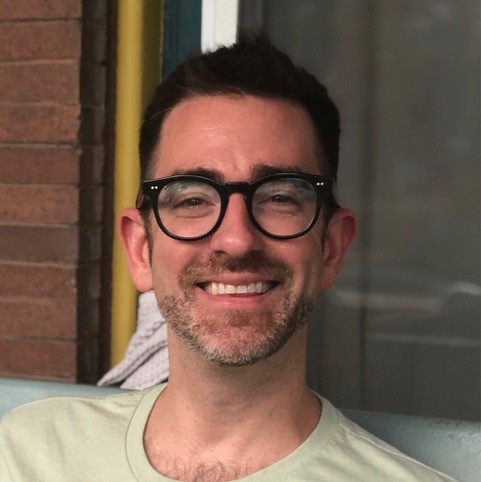Johns Hopkins UniversityEst. 1876
America’s First Research University
Is there a way to increase at-risk students’ chances of going to college? According to Nick Papageorge, the Broadus Mitchell Associate Professor of Economics, positive role models, specifically in the classroom, play an outsized role.
In 2018, Papageorge was part of a team that wrote “The Long-Run Impacts of Same-Race Teachers.” The study found that at-risk, predominantly black students – many of whom face adversity in their everyday lives – were more likely to enroll in college if they had a teacher of the same race to look up to.
What are some other ways the education system can better serve these students?
We checked in with Papageorge to learn more in this installment of What Happened Next?

Part of our work was motivated by interviews that were done with female black teachers before school desegregation and after school desegregation. With Brown vs. Board of Education, there was this mass exodus of female black teachers, because these all-black schools shut down or were somehow integrated. And the black teachers weren’t welcome to work in the schools where there were white students.
So there was this massive loss of high-quality black teachers.
They were asked, “Why were you so effective in these sort of severely under resourced all black segregated schools?” And they said, “Well, a couple of things. Curriculum is not just two-plus-two, but also how to act, how to speak.” And [black teachers] also communicated better with the parents. They were part of their community, so they might have communicated better with the kids. They also served as role models, as examples of the black educated middle class that some of these kids might have had little contact with.
Our research shows that even one black teacher matters, which corroborates what these teachers were saying. If students aren’t going to college or finishing high school because they didn’t have a black teacher in the third grade, that to me is a huge red flag that we’re just wasting human capital.
I traffic in empirical data analysis informed by decision theory. Decision theory looks at how people make decisions given their lives, goals, and constraints. I worked with Stefanie DeLuca [the James Coleman Professor of Sociology & Social Policy] and one of the things we thought about was that at-risk students are subject to a lot of adverse shocks, or bad stuff happening in their lives. If you think something bad is going to happen soon, it’s really hard for you to commit to a four-year degree, even if you know the four-year degree is really lucrative. A one-year option, which is less lucrative, might be better, because at least you can finish that one year.
It’s things like someone in your family being incarcerated and you having to take care of the kids. You might need to contribute income to the family because somebody is unemployed. Somebody can get shot. Somebody can overdose. When you’re thinking about at-risk kids who choose community college, they foresee this kind of landscape ahead of them, and they have to make their decisions accordingly. That’s what decision theory would predict and now we are asking whether we see this in the data.
It starts out as a moral and ethical question. Personally, I don’t like to see people having lives that aren’t as fulfilling as they could be. But others may not feel the same way. On another level, which is more transactional perhaps, high school dropouts are really expensive for society. For myriad reasons, they’re more likely to be unemployed, use public health benefits, not own a house, and have health problems. There is a cost-benefit analysis where you’re going to have to pay for it one way or another. So let’s make these upfront investments. On a third level, which is more academic, we need to think about the whole economy. If kids don’t finish high school because they lack role models or face some other social barrier, such as low expectations or poor school quality, we’re basically taking human capital and throwing it away, which means we as a society lose out on what these students could have done. There are many levels to thinking about this issue, and all of them point to it being important.
Interested in supporting the research efforts of faculty like Nick Papageorge?
Topics: Faculty and Staff, Research, Fuel Discovery, Support Scholars